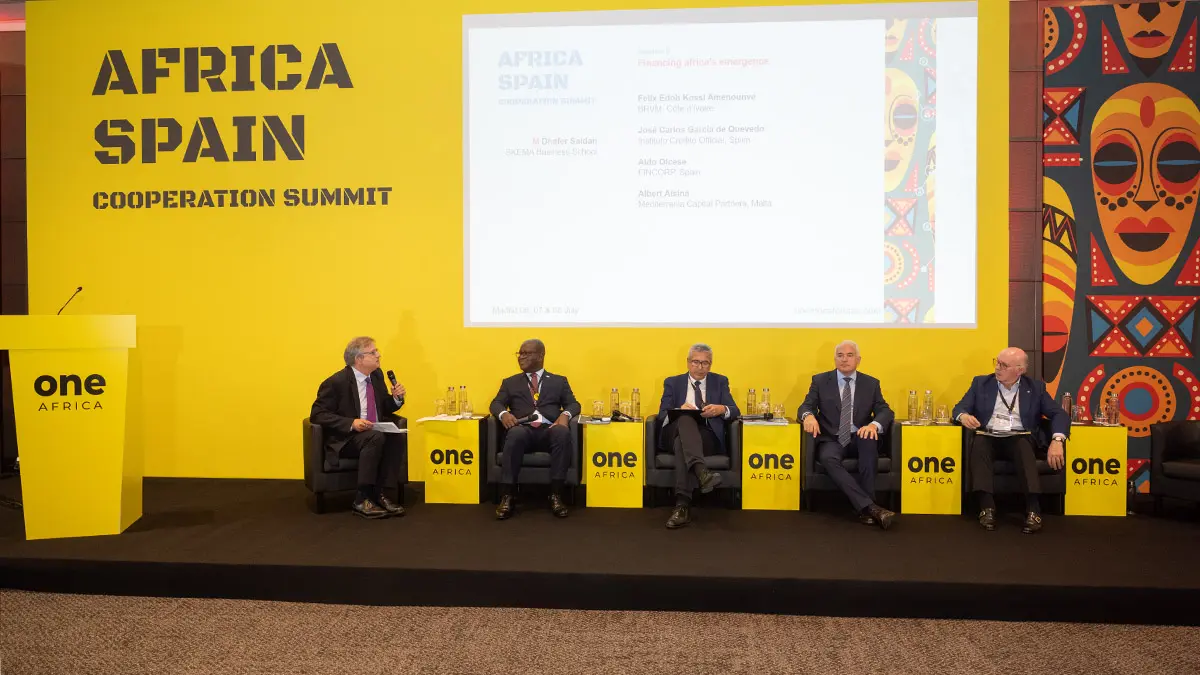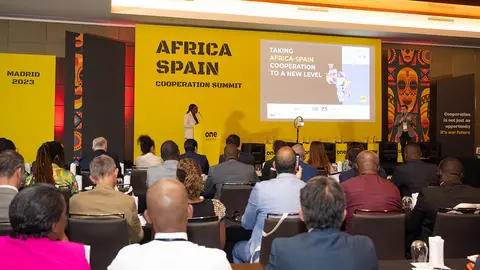A new look at Africa

It is rare that, among the many international congresses, conferences and seminars held in Spain, there is one devoted entirely to Africa. Well, it has happened in Madrid, with hundreds of African political, business and business leaders in attendance. Yes, black-skinned top executives with the multiple chromatic variety offered by the enormous diversity of the 54 countries that make up the political geography of the continent.
It was the first time that the Spanish capital had hosted a meeting of these characteristics, organised by the One Africa platform, which specialises in organising specialised forums in the main African cities. In other words, and as always, to promote knowledge and negotiation between investors and entrepreneurs eager to put their ideas and projects into practice. The novelty of the case is the lack of habit of seeing so many Africans at this type of forum who are willing to promote the giant leap that their countries need to make in order to complete the stages of their development and prosperity.
Numerous consultants and mediators from both sides of the Mediterranean also attended an event in which the clichés, reticence and mistrust of Spanish investors, on the one hand, and the evidence of the evolution and major social, economic and political changes taking place in Africa, on the other, were starkly exposed.
As many of the speakers and participants acknowledged, Spanish businessmen have begun to establish themselves in Africa because of Morocco, once they have seen the stability of the environment, the reliability of its legal protection and the profitability of their investments. Based on this example, leaders and businessmen from Mauritania, Senegal, Ivory Coast, Gambia and Benin, among others, presented the wide range of opportunities in their respective countries, from energy supply to the maximum use and recycling of water resources; from the construction of hundreds of thousands of homes to the installation of road, transport and communications infrastructures, as well as the essential digitalisation "to which we Africans and Europeans have as much right as Europeans".
During the three days of the meeting, with its usual working sessions, but above all its many bilateral meetings, Africa's demand to be treated on an equal footing could be seen, in short, to put an end to "the image of a cooperation based even unintentionally on commiseration". Of course, no one denied that thousands of Africans leave the continent's poorest areas every day in search of a destination where they can develop their best skills. But there was also a general complaint that the image of boats and unfortunate shipwrecks has become practically the only image with which citizens in the north of their continent associate and contemplate Africa and Africans.
Probably very few Europeans are aware that the strong and sustained economic growth of many African countries is giving birth to an increasingly large and powerful middle class with the logical aspirations to undertake and prosper. A middle class that no longer tolerates the dictatorships that were established following their independence in the 1960s; that demands to live in full democracy, that is to say, with the freedoms inherent to it.
They agree with the former Prime Minister of Benin and then business leader, Lionel Zinsou, that an Africa with an overflowing demography of young people, increasingly educated and trained, "is the solution for Europe", which is rightly rushing towards the massive ageing of the bulk of its citizens.
Africans say they are committed to deepening their great ambitions, such as the creation of a free trade area, a desire that will require many intermediate steps and many readjustments. But they hope that in the process their economies will maintain high levels of growth, and that customs barriers and red tape that discourage foreign investors will continue to be increasingly removed. Of course, there is still a long way to go, great efforts to be made and many prejudices to overcome. But no one can deny the hopeful outlook that all this brings for Africans and European Spaniards. A panorama that, in the midst of so many pessimistic, if not apocalyptic predictions about the future, offers a win-win prospect for Spain and for Africa.


